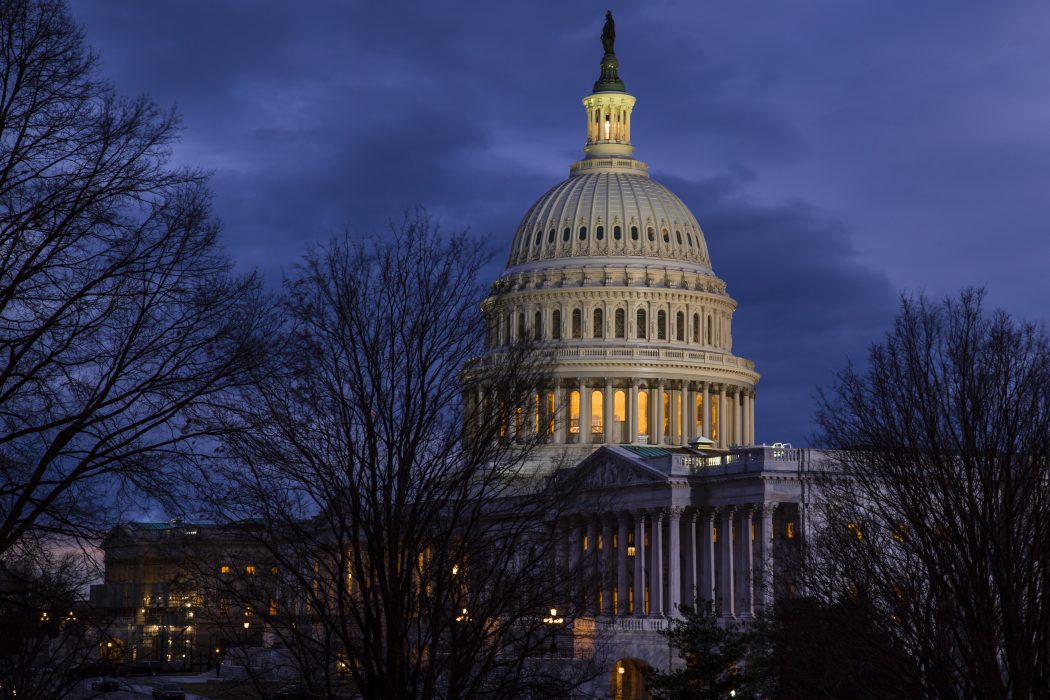Column: It’s time to repeal the 17th Amendment
Editor’s Note: To submit a response to this column, or submit a letter to the editor on a new topic, email your submission to opinion@usustatesman.com.
“The Senate of the United States shall be composed of two Senators from each State, elected by the people thereof, for six years; and each Senator shall have one vote” (17th Amendment of the Constitution of the United States of America, emphasis added).
If I were to suggest a change to any aspect of the Constitution as it currently exists, I would repeal the 17th Amendment.
The 17th Amendment establishes the selection of United States Senators by popular vote by the people of their respective states, and it is a mistake that erases the entire purpose of federalism and bicameral legislature the Founding Fathers intended.
The original text of Article 1, Section 3, Clauses 1 and 2 reads: “The Senate of the United States shall be composed of two Senators from each State, chosen by the Legislature thereof, for six Years; and each Senator shall have one Vote”.
This design of the Senate was a result of the Connecticut Compromise, which tempered the concerns of both the small states and the large states that were raised during the process of writing the Constitution. The argument centered on the question of how representation should be granted between the states. The bicameral compromise assuaged the concerns of the small states by promising a Senate that provided equal representation to all states, while granting the large states population-based proportional representation in the form of the House of Representatives.
However, the compromise was also a trade-off between the Federalists and the Anti-Federalists, who had disagreements on how much electoral power the people should be given and how much power the states should have. Members of the House of Representatives would be elected by the people in a system that was designed to represent “the popular will”, while the Senate would be appointed by state legislatures to serve as a “check” on the House and represent the interests of the states.
The appointment of Senators by legislatures tied this compromise together by guaranteeing the populist, passionate interests of the people would not overtake the legislative branch, an issue Federalists were committed to preventing, while also ensuring that state sovereignty would be protected by a legislative body that served to prevent the national government from stomping on the rights of the states, an issue Anti-Federalists were committed to preventing.
However, this arrangement came to an end with the passage of the the 17th Amendment in 1913.
It was passed due to fears that state legislatures had become corrupted by steel and oil monopolies, as well as concerns that state legislatures were unable to consistently agree on who to select as a senator and would fail to send senators to Washington. But these concerns of corruption were overblown, evidenced by the fact that between 1857 and 1900, there were only three Senate appointments investigated for corruption, and over the course of a century, only ten elections were contested at all. In addition, it was incredibly rare for states to fail to appoint its senators as a result of state legislative deadlock.
The 17th Amendment has instead resulted in the Senate evolving into a chamber of Congress that, similar to the House of Representatives, is subject to the populist desires of the people. Instead of operating as a chamber that was designed to protect states’ rights by having senators advocate in behalf of state legislatures and prevent the federal government from seizing too much power, the Senate has become a mirror-image of the House, passively giving up its Constitutional duties to the executive branch. With no officers in Washington designed to advocate on their behalf, state governments have turned to lobbyists to have their voices heard, spending more than $80 million in lobbying efforts, according to the Center for Responsive Politics.
If we repealed the 17th amendment, we could restore power to states by, prevent taxpayer money from being spent on lobbying, and even potentially increase voter turnout in midterm elections as a result of the election of local officials having implications for who becomes a Senator.
Andrew Rummens is a senior at Utah State studying political science. He enjoys following politics, watching movies, and cheering for the greatest NBA franchise of all time, the Utah Jazz.

